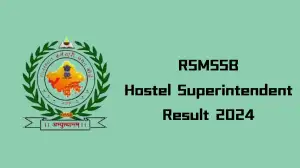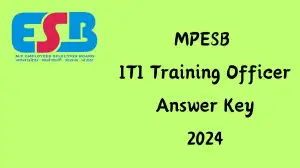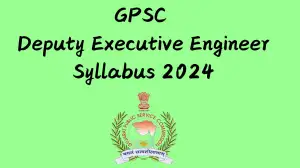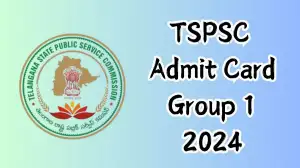SSC JE Syllabus 2024 Download Syllabus For Paper 1 and Paper 2 Here
by Tamilarasi S
Updated May 29, 2024
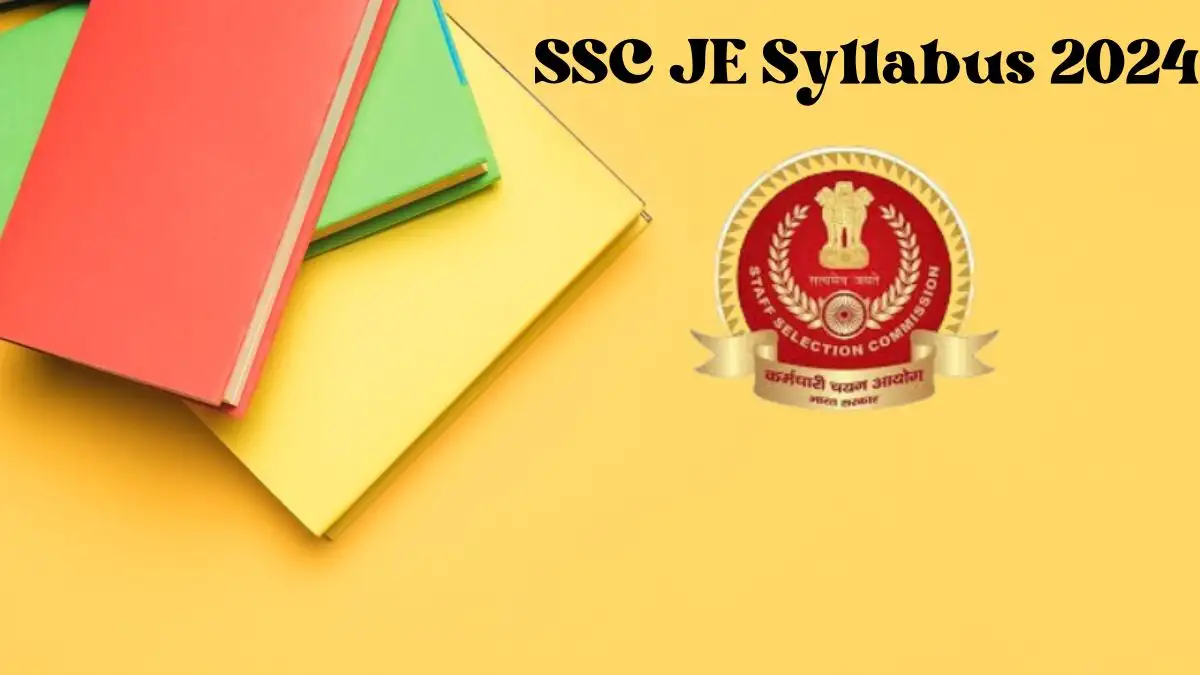
SSC JE Syllabus 2024
The SSC JE Syllabus 2024 outlines what topics candidates need to study for the Junior Engineer exam. Knowing this syllabus is crucial for effective preparation. It includes two papers: Paper 1 and Paper 2. Understanding the syllabus helps candidates know what to expect in the exam.
It covers subjects like General Intelligence, Reasoning, General Awareness, and specific Engineering topics. Familiarizing with the syllabus helps candidates focus their study efforts. Additionally, being aware of the exam pattern is important to understand question formats, total marks, and marking schemes. Overall, knowing the SSC JE Syllabus 2024 is essential for succeeding in the exam.
SSC JE Syllabus 2024 for Paper 1:
SSC JE Syllabus 2024 for Paper 2:
Civil Engineering
Building Materials: Physical and Chemical properties, classification, standard tests, use, and manufacture/quarrying of materials e.g. building stones, silicate-based materials, cement (Portland), asbestos products, timber and wood-based products, laminates, bituminous materials, paints, varnishes.
Estimating, Costing and Valuation: Estimate, glossary of technical terms, analysis of rates, methods and unit of measurement, Items of work – earthwork, Brick work (Modular & Traditional bricks), RCC work, Shuttering, Timber work, Painting, Flooring, Plastering, Boundary wall, Brick building, Water Tank, Septic tank, Bar bending schedule, Centre line method, Mid-section formula. etc.
Surveying: Principles of surveying, measurement of distance, chain surveying, working of the prismatic compass, compass traversing, bearings, local attraction, plane table surveying, theodolite traversing, adjustment of theodolite, Levelling, Definition of terms used in leveling, contouring, curvature and refraction corrections, temporary and permanent adjustments of dumpy level, etc.
Soil Mechanics: Origin of soil, phase diagram, Definitions-void ratio, porosity, degree of saturation, water content, specific gravity of soil grains, unit weights, density index and interrelationship of different parameters, Grain size distribution curves and their uses Index properties of soils, Atterberg‟s limits, ISI soil classification and plasticity chart Permeability of soil, coefficient of permeability, etc.
Hydraulics: Fluid properties, hydrostatics, measurements of flow, Bernoulli’s theorem and its application, flow through pipes, flow in open channels, weirs, flumes, spillways, pumps and turbines
Irrigation Engineering: Definition, necessity, benefits, 2II effects of irrigation, types, and methods of irrigation, Hydrology – Measurement of rainfall, run off coefficient, rain gauge, losses from precipitation – evaporation, infiltration, etc Water requirement of crops, duty, delta and base period, Kharif and Rabi Crops, Command area, Time factor, etc.
Transportation Engineering: Highway Engineering –cross-sectional elements, geometric design, types of pavements, pavement materials – aggregates and bitumen, different tests, Design of flexible and rigid pavements – Water Bound Macadam (WBM) and Wet Mix Macadam (WMM), Gravel Road, Bituminous construction, Rigid pavement joint, etc.
Environmental Engineering: Quality of water, source of water supply, purification of water, distribution of water, the need for sanitation, sewerage systems, circular sewer, oval sewer, sewer appurtenances, sewage treatments Surface water drainage Solid waste management, etc.
Structural Engineering: Theory of structures: Elasticity constants, types of beams – determinate and indeterminate, bending moment and shear force diagrams of simply supported, cantilever and over hanging beams Moment of area and moment of inertia for rectangular & circular sections, bending moment and shear stress for tee, etc.
Concrete Technology: Properties, Advantages, and uses of concrete, cement aggregates, the importance of water quality, water cement ratio, workability, mix design, storage, batching, mixing, placement, compaction, finishing and curing of concrete, quality control of concrete, etc.
RCC Design: RCC beams-flexural strength, shear strength, bond strength, design of singly reinforced and double reinforced beams, etc
Steel Design: Steel design and construction of steel columns, beams roof trusses plate girders
Electrical Engineering
Basic concepts: Concepts of resistance, inductance, capacitance, and various factors affecting them Concepts of current, voltage, power, energy,y and their units
Circuit law: Kirchhoff’s law, Simple Circuit solution using network theorems
Magnetic Circuit: Concepts of flux, mmf, reluctance, Different kinds of magnetic materials, Magnetic calculations for conductors of different configurations e.g. straight, circular, solenoidal, etc Electromagnetic induction, self and mutual induction
AC Fundamentals: Instantaneous, peak, RM, S ,and average values of alternating waves, Representation of sinusoidal wave form, simple series and parallel AC Circuits consisting of RL and C, Resonance, Tank Circuit Poly Phase system – star and delta connection, 3 phase power, DC and sinusoidal response of R-Land R-Circuit
Measurement and measuring instruments: Measurement of power (1 phase and 3 phase, both active and re-active) and energy, 2 wattmeter method of 3 phase power measurement, Measurement of frequency and phase angle Ammeter and voltmeter, etc.
Electrical Machines : (a) DC Machine – Construction, Basic Principles of DC motors and generators, their characteristics, speed control and starting of DC Motors Method of braking motor, Losses and efficiency of DC Machines, etc Synchronous Machines - Generation of 3-phase emf armature reaction, voltage regulation, parallel operation of two alternators, synchronizing, control of active and reactive power Starting and applications of synchronous motors
Generation, Transmission, and Distribution: Different types of power stations, Load factor, diversity factor, demand factor, cost of generation, inter-connection of power stations Power factor improvement, various types of tariffs, types of faults, short circuit current for symmetrical faults Switchgears, etc
Estimation and costing: Estimation of lighting scheme, electric installation of machines and relevant IE rules Earthing practices and IE Rules
Utilization of Electrical Energy: Illumination, Electric heating, Electric welding, Electroplating, Electric drives and motors
Basic Electronics: Working of various electronic devices e.g. P N Junction diodes, Transistors (NPN and PNP type), BJT, and JFET Simple circuits using these devices
Mechanical Engineering
Theory of Machines and Machine Design: Concept of a simple machine, Four bar linkage and link motion, Flywheels and fluctuation of energy, Power transmission by belts – V-belts and Flat belts, Clutches – Plate and Conical clutch, Gears – Type of gears, gear profile and gear ratio calculation, Governors – Principles, etc
Engineering Mechanics and Strength of Materials: Equilibrium of Forces, Law of motion, Friction, Concepts of stress and strain, Elastic limit and elastic constants, Bending moments and shear force diagram, Stress in composite bars, Torsion of circular shafts, Bucking of columns–Euler’s and Rankin’s theories, Thin walled pressure vessels
Thermal Engineering: Properties of Pure Substances: p-v & P-T diagrams of pure substance like H2O, Introduction of steam table concerning steam generation process; definition of saturation, wet & superheated status Definition of dryness fraction of steam, degree of superheat of steam H-s chart of steam (Mollier’s Chart)
1st Law of Thermodynamics: Definition of stored energy & internal energy, 1st Law of Thermodynamics of cyclic process, Non-Flow Energy Equation, Flow Energy & Definition of Enthalpy, Conditions for Steady State Steady Flow; Steady State Steady Flow Energy Equation 2nd Law of Thermodynamics
2nd Law of Thermodynamics: Definition of Sink, Source Reservoir of Heat, Heat Engine, Heat Pump & Refrigerator; Thermal Efficiency of Heat Engines & co-efficient of performance of Refrigerators, etc
Air standard Cycles for IC engines: Otto cycle; plot on P-V, T-S Planes; Thermal Efficiency, Diesel Cycle; Plot on P-V, T-S planes; Thermal efficiency. IC Engine Performance, IC Engine Combustion, IC Engine Cooling & Lubrication
Rankine cycle of steam: Simple Rankine cycle plot on P-V, T-S, h-s planes, Rankine cycle efficiency with & without pump work.
Overview
|
Exam Conducting Body |
Staff Selection Commission (SSC) |
|
Exam Name |
SSC JE (Junior Engineer) Exam |
|
Category |
SSC JE Syllabus and Pattern |
|
Selection Process |
Paper 1 and Paper 2 |
|
Maximum Marks |
Paper 1: 200 marks Paper 2: 300 marks |
Exam Pattern
Paper-1:
Paper-2:
How to Cover
- Read through the syllabus to know what topics are included.
- Use good books and study materials to learn the topics well.
- Solve practice questions and previous year's papers to get familiar with the exam format.
- Review important topics regularly to remember them better and use shortcuts for quick problem-solving.
By following these steps, you can effectively prepare for the SSC JE exam.
